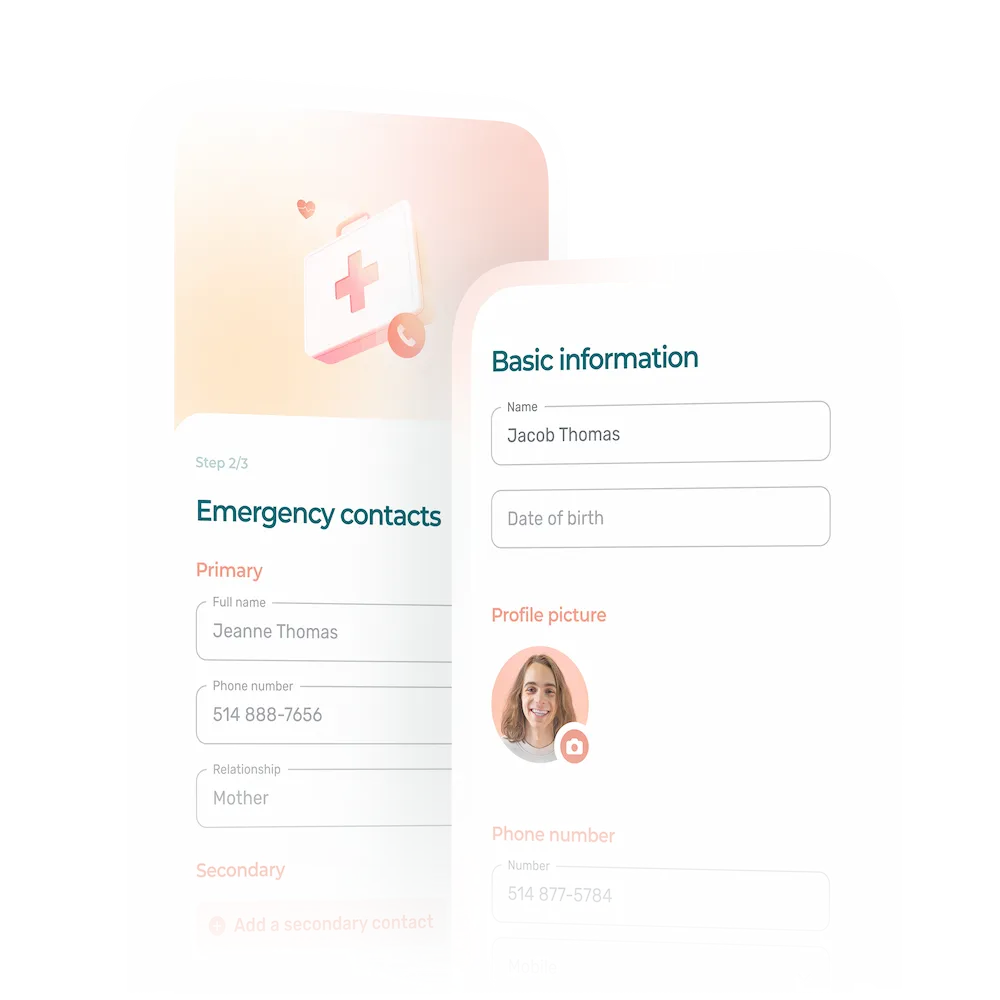The annual performance review is an essential management technique for managers who want to keep their employees for a long time to come. But what does it consist of?
An annual performance review is a formal meeting between an employee and their superior. The main purpose is to evaluate the employee’s performance.
Although an annual performance review is not mandatory, it is a widespread management practice. Among other things, it provides an opportunity to go back over the year, discuss the difficulties encountered and the skills to be developed, establish goals to achieve for the next year, and adjust the employee’s salary.
At Agendrix, we have decided to conduct our performance reviews biannually. This allows us to discuss with our manager more frequently and to make adjustments more expediently in case of any issues.
No matter how often you conduct your annual performance reviews, the following 4 topics are always a must:
- Performance;
- Professional development;
- New goals to achieve; and
- Working conditions.
Let’s take a look at each in turn.
1. Employee Performance
The main purpose of the performance review is to give the employee feedback so that they can improve or know that they are doing a good job and keep it up.
To properly review an employee’s performance, managers must take several factors into account. Start by checking attendance at work. To make this easier, use scheduling software enabling you to track your employees’ time and attendance. This way, you will be able to quickly see if an employee is frequently absent or regularly late to work.
It’s also important to try and understand the reasons behind your employees’ behavior. For example, absences or lateness may be due to lack of motivation, health problems, or burnout. You will then be in a better position to act and resolve the situation.
Next, paint a picture of your employee’s strengths and weaknesses. Keep your comments constructive, otherwise they may not be well received. Use concrete examples so that the employee understands what they need to improve or continue to do.
In addition to the employee’s task-related skills, don’t forget to address their interpersonal or soft skills. The interview is an ideal time to address issues related to the employee’s attitude or behavior.
💡 During the meeting, it’s important to always provide feedback based on facts, not feelings. And don’t forget to leave some room for the employee to express their point of view and give their opinion.
Examples of Sentences to Use During an Annual Performance Review
- I’ve noticed that you’ve been arriving late to work more often. But in the past, you’ve always been very punctual. Is there any particular reason for the change?
- One of the things you need to improve in your work is your management of priorities. Sometimes you do the less important tasks before the urgent ones.
As a result, your colleagues sometimes have to set aside their own responsibilities to come and help you right away. - I wanted to congratulate you on your hard work this year. Your performance was the highest of the entire sales team. Your work directly helps along the success of the company.
- I wanted to highlight your strong teamwork skills. You’re always willing to lend a hand to your colleagues, and that has a positive effect on team spirit. You are an example to follow.
2. Employee Professional Development
Professional development is an often-neglected topic during performance reviews. Discussing future plans with your employee is very relevant.
By doing so, you can better understand what kinds of responsibilities or position they are interested in. You can then offer them training or support to develop their skills.
Investing in employees’ skills is one way to improve their engagement at the company. Giving your employees opportunities to grow will help them project themselves into the future and imagine themselves staying with your team in the longer term.
6 Examples of Questions to Ask During the Annual Performance Review
- What skills would you like to develop in the next year?
- Where do you see yourself 2, 3 or 5 years from now, professionally speaking?
- Are you happy with your current position?
- Are there any courses that you’re interested in?
- Are you satisfied with your current responsibilities?
- What position would you like to hold in 1, 2 or 3 years?
3. New Goals to Achieve
It’s important to set goals during the performance review. This allows your employee to better understand your expectations, and helps you to better evaluate their performance when the time comes.
Introduce the goals you had envisioned and discuss them with your employee to make sure they are in line with their personal goals.
Choose SMART Goals
Make sure the goals you choose are SMART.
Specific: be specific and avoid vague goals;
Measurable: define a quantity, threshold, level or value to reach;
Attainable: make sure the goals are concrete and achievable;
Realistic: make sure they are appropriate and sensible;
Time-bound: determine the time frames involved and set a deadline.
For example, instead of saying: “You need to improve your sales,” try saying: “You need to achieve average transactions of over $100 per customer within 6 months.”
4. Working Conditions
Don’t hesitate to ask your employees if they are happy with their working conditions. Take the opportunity to see if you can increase their job satisfaction. Foster their work-life balance by offering more vacation days per year, additional sick days, more flexible scheduling, etc.
The annual performance review is also normally the most appropriate time to talk salary. Your employee will almost certainly want to bring up the subject at least once a year, so be prepared.
If the employee’s work meets requirements, it is appropriate to offer a raise. In fact, in my opinion, employees’ salaries should be increased every year to at least keep up with inflation, otherwise they will become poorer in the long run—and perhaps go looking for a new job.
In today’s labor shortage, it’s more important than ever to offer competitive salaries and attractive working conditions to attract and retain talent.
The Annual Performance Review: A Meaningful Conversation
An annual performance review requires preparation. There are so many important topics to discuss that you’ll need to plan for the meeting thoroughly. Don’t wait until the last minute to assess your employee’s work and set the agenda.
The better organized your performance reviews are, the more constructive they will be and the greater the concrete impact they will have on your company’s operations. With the right management practices, you’ll see your retention rates soar—along with your employees’ satisfaction, and so much more.










